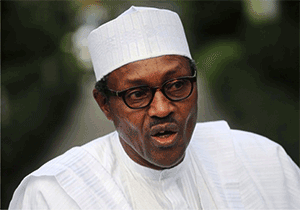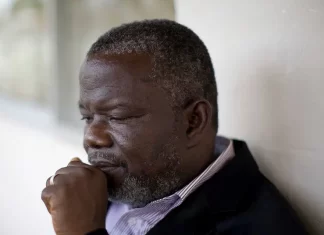Editor, Politics/Features, EMEKA ALEX DURU, attempts interpretation of the General Muhammadu Buhari mystique and the challenges associated with it as the APC presidential candidate emerges president-elect.
PROLOGUE
On February 6, General Muhammadu Buhari (rtd.) took a trip to Maiduguri, Borno State, in the course of his campaign as presidential candidate of All Progressives Congress (APC). Many likened the move to hunting in a lion’s den – a risky gamble of sort. And they had their reasons.
Maiduguri and other towns in Borno, and by extension the entire North East, were then in a near state of war, on account of Boko Haram insurgency. Many security agents that had been dispatched to quell the insurgency had clearly been overwhelmed by the terrorists. Thus, when the retired General embarked on the trip, it appeared a suicidal mission of sort. “Was this not the Maiduguri that even the residents were leaving in droves?” concerned Nigerians and party members had asked.
But the General was not deterred. In fact, to the surprise of many, the turn-out by his supporters was tumultuous. And the security agents stationed at the Maiduguri Stadium were overwhelmed.
In capturing the situation, a national daily, Leadership, had reported: “At a point, the apparently exasperated soldiers and policemen were forced to shoot into the air and release some canisters of tear gas in a failed attempt to keep the crowd at bay.”
That, incidentally, did not work. In fact, as Buhari’s motorcade snaked into the ecstatic crowd, it became more difficult to maintain order.
Leadership described the situation further: “The crowd went wild when Buhari had to walk through the elevated isle of the mega podium. Fans went out of control as they broke through the iron barricade that fenced them out and rushed towards the stand.
“The friendly show of support and love for the APC presidential candidate suddenly became a threat, as all pleas for them to calm down fell on deaf ears. Sensing that it would amount to a waste of time if he should insist on speaking, Buhari took the advice of his aides and quickly allowed them to whisk him out of the venue.”
That was the Buhari phenomenon – a mystique, indeed. In his first outing as military head of state, through a coup d’tat, in 1984, the former army officer left a mark on Nigerians that has, somehow, remained indelible. Coming on board at a time the nation had bled profusely on account of corruption, dwindling ethical values and badly managed economy, he had approached governance with anger.
Of course, he had to. Celebrated columnist and former Editor-in-Chief of Newswatch magazine, Dan Agbese, put what Buhari met on the ground succinctly. “In 1984, Buhari came into office as an angry General. He was disappointed that in only four years and three months or so, the politicians had managed, quite remarkably, to put the economy in serious ‘predicament’. Our country was ‘afflicted’ by a ‘crisis of confidence’. Nigeria became a risky country to do business with. Its trading partners denied it lines of credit. Young Nigerians were checking out in search of greener pastures elsewhere.”
But in the face of the troubling environment, the General remained undaunted. He rather gave the country courage, character and carriage. His punch line captured it all. It said, “This generation of Nigerians and indeed future generations have no other country than Nigeria. We shall remain here and salvage it together.”
Buhari, 30 years after he was ousted from power in a palace coup by his then army chief, Ibrahim Babangida, is still on salvage mission in a country that is derisively referred to as a sleeping giant.
On three occasions before now, he had offered himself for service at the presidential level. At such attempts, however, he had had his nose bloodied in defeat and betrayal. Even as he lost – serially, as his opponents sniggered, his courage in pursuing the chosen cause never failed him. Each time in the unsuccessful attempts, believing that the verdict by the electoral umpire did not reflect the true decision of the people, he pursued his case all the way to the highest court in the land. The courts, unfortunately, did not favour him. But he remained undaunted.
In 2011 when he made his third effort for the apex job, he cut the image of the biblical John the Baptist, preaching in the wilderness to his people to change from their old ways of doing things. Perhaps sensing that his message was not making the right impact, Buhari wept.
The action, coming from a man of 68 years then and retired two-star General, elicited diverse interpretations. Some dismissed it as the height of desperation and despondency. This was especially the interpretation from his opponents, especially the elite, who had not really been sold to his Spartan disposition. To others, Buhari cried not because of what he stood to lose as a person for not winning power, but the opportunity his countrymen were allowing to slip in denying him the chance to serve.
Patrick Nwabunnia, a political scientist and public affairs analyst, says that what the former head of state did in 2011 was uncommon and deserved attention.
“For Buhari, a retired General and a man of 68 years to cry in the public deserved attention. It was unusual. The nation also cried with him, as events turned out four years later,” he remarks.
What the now president-elect exhibited then was, perhaps, an expression of frustration at the state of affairs in the country. In 2003, while making a bold entry into the nation’s civil politics, he had told a Lagos weekly, TheNews magazine, “I think this country is in a mess.” The mess, he added, needed to be cleaned up.
The masses saw that as a statement of action. But then he was received with great deal of caution by the political elite, apparently on account of his past dictatorial background. But he surprised even the most cynical by setting a standard that was lacking before then. He was the only presidential candidate that year to publish his manifesto – an impressive document that captured the country’s lost opportunities and proffered the way forward.
Agbese continues the story. “Twice Buhari stood on the platform of his party, All Nigeria Peoples Party (ANPP), and twice the wily politicians used him as a bargaining chip with the ruling party. Thus compromised and happy with it, the politicians also made their party history. Their vengeance was to make Buhari a political orphan. By the 2003 general elections, the party had lost all but two of the seven states it won in 1999.
“Buhari understood the game. He took an unprecedented step. He formed his own political party, Congress for Progressive Change (CPC), on whose platform he contested the presidential election in 2011.”
CPC won only one governorship seat – Nasarawa. But it gave the General, in addition to his cult-like personality, a bargaining power in the build-up to the formation of the APC. At the December 2014 convention of the party, it did not come as a surprise to keen followers of the exercise that he emerged its presidential candidate. Analysts, in fact, saw him as the face of the party and the arrowhead it needed to confront the ruling party.
But that came with a price, as the general was opened to attacks from different flanks. Aside his academic qualification that is still subject of disputation at the courts, his health status due to age and religious inclination also became issues of debate.
However, at no time did his competence on the job come into question. His mass-appeal was also not diminished by the seemingly unceasing banters. The Maiduguri outing was, in fact, an instance in the crowd participation on his campaigns.
At all points, he told the people that he had no money to give and no goodies to share, but had his integrity to stake for good governance. The message resonated among the youth, the workers and unemployed, as well as the elderly that had borne the brunt of bad governance in the last 16 years that the Peoples Democratic Party (PDP) has ruled the country.
Buhari’s fourth attempt at the presidency finally paid off at the March 28 rescheduled presidential and National Assembly elections when he beat incumbent President Goodluck Jonathan.
Incidentally, in a move that has been applauded by many, Jonathan has conceded defeat and has congratulated the president-elect. What this rare feat has saved Buhari and the nation is the distraction usually arising from legal entanglements occasioned by the polls. For the General, therefore, the party is over, even before his May 29 inauguration.
It is now time for action. Experts had, somehow, predicted tougher days ahead for the country, given the gloomy global economic indicators.
Professor of Economics and former Central Bank of Nigeria (CBN) Governor, Charles Soludo, had, for instance, alerted Nigerians to gird their loins for some rough economic measures, regardless of who won the presidential race between Jonathan and Buhari.
“None of them will be able to deliver on the fantastic promises being made on the economy, and if oil prices remain below $60, I see very difficult months ahead, with possible heady collisions with labour, civil society and indeed the citizenry,” he had predicted.
Soludo added: “Let me admit that the two main parties talk around the major development challenges – corruption, insecurity, economy (unemployment/poverty, power, infrastructure, health and education, among others). However, it is my considered view that none of them has any credible agenda to deal with the issues, especially within the context of the evolving global economy and Nigeria’s broken public finance.
“The United Kingdom (UK) Conservative Party’s manifesto for the last election proudly announced that all its programmes were fully costed and were therefore implementable. Neither the APC nor the PDP can make a similar claim.
“A plan without the dollar or naira signs to it is nothing but a wish-list. They are not telling us how much each of their promises will cost and where they will get the money. None talks about the broken or near bankrupt public finance and the strategy to fix it.”
For his audacious intervention, PDP and federal government attack dogs were unleashed at the former CBN governor. APC, on its own, claimed having a template to tackle the major issues confronting the nation.
Incidentally, the party’s national leader, Bola Tinubu has described Buhari’s victory as Nigeria’s finest moment in its political history, pledging that APC would seize the opportunity to take the country to the next level.
“It is a moment when hope is re-born, faith is rekindled and a fresh fire of patriotism is released for the task ahead. I congratulate General Buhari, Nigeria’s president-elect, on his hard-won victory. I salute our gallant party leaders and members for running the long distance to victory. To millions of Nigerians, I say this: the APC seeks not power for its sake, but for the purpose of bringing a better life to our people and re-building our country.
“This is also democracy’s finest moment. Nigerians alive today have witnessed the beginning of an era of change. Nigerians expect Buhari to translate this into action, to establish his phenomenon, firmly.”














